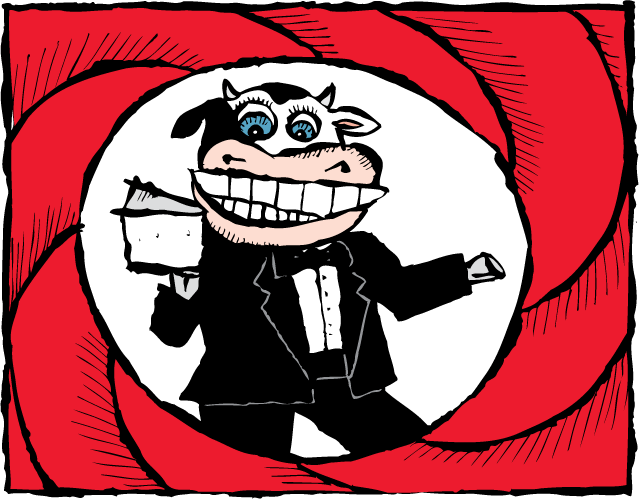Natural Law #12: Great organizations are appreciative, and the people in them have more fun

I added this one to the list fairly recently. It’s not that having fun is a novel idea—here at Zingerman’s we’ve had it written into our guiding principles for years. But we long ago realized that fun was something we had to actively make happen, not something that would arrive on its own.
Note that by “having fun” I’m not talking about a bunch of goofy behaviors, making your staff wear funny hats or pins, or telling jokes (although in the right culture any or all of those might work). I’m talking about the quality of the energy in our work environment; about enjoying and appreciating all the really amazing little things that surround us every day but that so many people don’t stop to appreciate; about realizing that it’s the ride and not the destination that’s really the point of things.
And before some cynic says something like, “well that’s easy for them because they’re successful, so of course they’re having fun,” I’m going to posit that in this case, as in so many other things in life, the behavior actually very often precedes the feeling. Great organizations aren’t having fun just because they’re great rather, they’re great because the people in them are actively appreciative and have learned to enjoy doing whatever it is they need to do to succeed in ethical and caring ways.
Chip Conley, the founder and CEO of Joie de Vivre Hospitality, shares a great example of this in his highly recommended book, Peak: How Great Companies Get Their Mojo from Maslow. During the depths of the dot-com crash Joie de Vivre was as hard hit as any other Bay Area hotel group. As sales suffered Chip had to go without salary for a number of years. Perhaps harder still, after many years of success he had to approach his investors with a capital call to raise operating cash for the hotels. As part of the call he and his staff designed a T-shirt to send to each investor. On the front it said, “San Francisco Hotels 2002: The Sky is Falling,” and on the back, “Joie de Vivre Hospitality. Strong Enough to Restore the Sky.” And then, underneath . . . “I bought a hotel in San Francisco and all I got was this lousy T-shirt?” A little humor in the face of great financial adversity goes a long way!
The capital call went very smoothly, the company stayed strong, and they’re doing well now. Obviously the shirt was not the keystone of the company’s recovery. But, hey, the humor helps. After they made it back to equilibrium, one of the company’s investors sent Chip back a T-shirt that said, “Joie de Vivre Hospitality . . . No Bankruptcies, No Defaults, No Salary.”
I’ll close this discussion of the last of the twelve laws with a quote from Logan Pearsall Smith. It’s from his 1931 essay, “Life and Human Nature,” which I first saw in Chip’s book. The piece immediately struck me as being so much in sync with this twelfth rule. “There are two things to aim at in life,” Smith wrote. “First, to get what you want; and, after that, to enjoy it. Only the wisest of mankind achieve the second.”
Twelve Natural Laws of Business:
There are organizational principles that consistently work and, in the big scheme of things, follow a natural order. We call these “Natural Laws of Business.” Our experience here is that the natural laws are applicable for any business regardless of size, scale, age or product offering. Exceptions exist, but I’ll say up front I wouldn’t recommend expending much energy trying to prove these rules to be wrong.




Zingerman’s Art for Sale